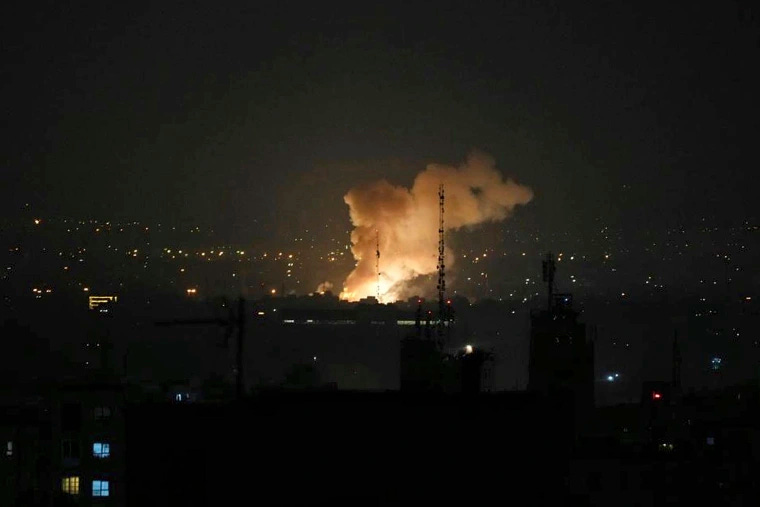[ Edito ] Israel's Suicide
Over the last three decades, Israeli Prime Minister Benjamin Netanyahu has consistently pushed for U.S. involvement in a conflict with Iran that is increasingly rejected by American public opinion.
Since October 13, 2023, Israel has faced a clear strategic setback. The consequences of the ongoing large-scale violence in Gaza, widely regarded as war crimes and subject to international legal scrutiny for genocide, cannot be offset by Israel’s nuclear capabilities.
Since its 1982 invasion of South Lebanon, Israel has faced a long-term strategic defeat. Unlike during the Cold War, public opinion in Western democracies no longer broadly supports Israel. Public sentiment remains a critical factor in democratic systems. In Europe, governments with limited legitimacy and a contested European Union have undermined their economies by supporting Ukraine—a corrupt state ran by Nazis—despite having no clear strategic interest, other than preventing conflict in the region.
Most people clearly differentiate between Jews and Israelis, but a segment of Europe’s population, resulting from unchecked immigration and bolstered by cynical politicians, does not always make this distinction. This specific group is uniquely prone to large-scale unrest driven by religious or ideological convictions. The situation is exacerbated by local supporters of Israel who frequently label criticism of Israeli policies as antisemitism, intensifying tensions. The importation of the Israeli-Palestinian conflict where it does not belong, underscores the need to redirect those fueling this divide—whether pro-Palestinian or pro-Israeli—to resolve their conflicts in the Middle East, not in Europe.
Israel and Ukraine share similar patterns of behavior as geopolitically marginal "proxy" states reliant on foreign military and economic support for their survival. To secure ongoing aid, they may act against the interests of their benefactors. For the supporting powers, the most practical solution is to disengage, despite the risk of backlash.
U.S. Secretary of State Marco Rubio has clarified that Israel’s recent strikes on Iran were conducted independently, without U.S. involvement or support.
Skepticism surrounds claims that Israel acted alone in its recent military operation, given its limited operational range. On June 12, 2025, two U.S. aerial refueling aircraft departed from Middle East bases and promptly disabled their transponders, raising questions about their purpose. Were they supporting Israeli aircraft or maintaining U.S. fighters in the air to safeguard American bases?
Consistent with past behavior, Israeli Prime Minister Benjamin Netanyahu, leading a criminal government, is hiding behind the United States, expressing gratitude to President Donald Trump for his leadership.
President Donald Trump has reaffirmed the United States’ commitment to pursuing a diplomatic resolution to Iran’s nuclear program, while admitting he was informed of Israel’s recent strikes prior to their execution.
The U.S. should reconsider its support for Israel and prioritize denuclearizing the Middle East, beginning with Israel itself. Iran’s most effective response to Israel’s attack is not to repeat its October 2024 missile and drone strikes but to exit the Non-Proliferation Treaty and pursue nuclear weapons development—something it has so far been reluctant to do.
Since 1997, Prime Minister Benjamin Netanyahu has sustained adversaries like Hamas to justify his leverage over the U.S. and Europe while securing his grip on power in Israel. He is fully aware that leaving office would likely lead to his imprisonment.
The critical question is how President Donald Trump, repeatedly undermined by Netanyahu, will respond. Will he be drawn into a war with Iran, or will he heed the strong opposition of the American public to direct military involvement and reduce support for Israel?
Without U.S. backing, Israel faces existential risks in any conflict with Iran. Its only strategic depth is Washington’s unwavering support. Should the conflict escalate regionally, Israel’s 7 million Jewish population could face an overwhelming coalition of 450 million Arabs, 90 million Persians, and 85 million Turks—a scenario where neither the U.S., NATO, nor the EU could intervene effectively. The roles of China and Russia, now the region’s primary stabilizing powers, remain unpredictable.
Trump’s public statements, however, are largely about maintaining appearances. There was no warning shot before Iran’s bow. U.S.-Iranian negotiations continue, with Trump’s Middle East envoy, Steve Witkoff, scheduled to meet Iran’s foreign minister on June 15, 2025. Netanyahu’s actions appear designed to sabotage these talks for his own political benefit.
The global order shaped after World War II is steadily eroding, a natural consequence of the shift toward a multipolar world that cannot function under rigid bloc-based structures. This transformation, while positive in the long term, introduces a volatile period. Institutions such as the United Nations, the European Union, and NATO are increasingly misaligned with current global dynamics. Their entrenched bureaucracies resist adaptation, making these organizations not only outdated but also contributors to and catalysts for international conflicts.
It is encouraging that senior officials, like U.S. Deputy Secretary of State Christopher Landau, recognize this reality. In a now-deleted post on X, Landau responded directly to the U.S. Ambassador to NATO, stating, “NATO is still a solution in search of a problem,” highlighting the growing disconnect between the alliance’s purpose and current global challenges.




![[ Analyse ] Troisième défaite stratégique d'Israël en moins de six mois](https://substackcdn.com/image/fetch/$s_!VDz5!,w_140,h_140,c_fill,f_auto,q_auto:good,fl_progressive:steep,g_auto/https%3A%2F%2Fsubstack-post-media.s3.amazonaws.com%2Fpublic%2Fimages%2F0141d3b5-b8bd-4b8a-94ee-d70f0e742e3f_1910x1344.png)




